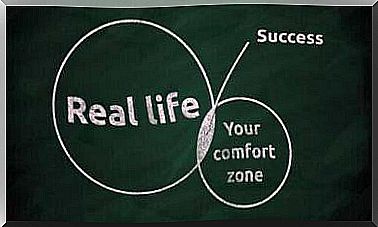The Danger Of Good Intentions

Often, many of the good intentions we have remain useless if they are not accompanied by actions that make them into reality. On other occasions, it is better to keep good intentions rather than jump straight into action: we can predict an unwanted consequence and dissuasive enough to put our intentions aside.
While we achieve a lot of good intentions by thinking about the positive for each other, the end result may not be what we expected. Often times, we make decisions based on feelings, and with ingenuity on our side, we believe that anything is possible if it comes from the heart.
“The path to hell is built with good intentions. “
-Marina. Carlos Ruiz Zafon-
However, things don’t always turn out the way we would like them to. Despite good intentions, our actions can cause great harm. Before taking action, it is advisable to think about what we are doing, if we have the necessary capacity to carry out our project and to think about the consequences that its materialization can entail.
When the act is worse than the intention
Despite the continuous messages we receive like “to get there we just have to dream about it” or “nothing is impossible”, what is certain is that there are things that we cannot achieve just by wishing for them. .
If the right attentions are not supported by the necessary knowledge, they can become dangerous. The decisions we make can have an influence on ourselves as well as on the people we love, and without the slightest intention of harming them, they can have a bad result.
If we wanted to operate on a loved one to save their life, we would not only need good intentions, but also the necessary knowledge; otherwise, we would end up killing him (it is certain that we would have done so with all our good intention).
The Dunning-Kruger effect
The famous Dunning-Kruger effect states that the less we know, the more we think we know. Thus, people who have little knowledge in a concrete field can feel competent without being aware of their great ignorance. Many psychologists are tired of hearing, “I know more about psychology than you do, even though I didn’t study it in college.”
“The overestimation of the incompetent arises from the misinterpretation of one’s own capacity. The undervaluation of the competent arises from the misinterpretation of the capacity of others.
-David Dunning y Justin Kruger-

The same can happen with the actions we take or the advice we give while thinking of the good for them. Family members, friends or strangers who build their business solely on the glue of good intentions, without appealing to acquaintances, normally sign their failure.
Locked in our ideas
When someone is only looking in one direction, it’s hard to get them to open their eyes to new horizons. Conflicting ideas do not go together well, cause discomfort, and are not well received by our mind. It is for this reason that we are used to rejecting a perspective, adjusting reality to the vision that appeals to us the most.
The cognitive dissonance effect explains that when we have two opposing ideas, for example “I believe that what I do is good for others” and “a lot of people say that what I do can be harmful”, we feel a internal discomfort that we will try to eliminate.

Due to the way our minds work, it is difficult to come out of the predetermined ideas that we have. When something contradicts our point of view, the most natural solution is to neutralize it quickly, by looking for something that supports our position or by disqualifying the person who comes up with the new idea. For some, this “defense exercise” has become such an automatic process that they are not even aware they are performing it.
When you add the Dunning-Kruger effect to cognitive dissonance, the results can be damaging. There is nothing more dangerous than an ignorant person who believes himself capable of anything and who is moreover incapable of looking in other directions which are not his own.
The importance of knowledge
In some areas of our lives, good intentions are not enough. When it comes to important topics, such as health or well-being, it is necessary that positive wishes are accompanied by knowledge and professional ethics.

Although many people approach us with good intentions, remember that often times these are not enough. Thinking before you act and asking for an expert’s opinion can sometimes bring more benefits than being guided by words that are just as good and seductive as they are dangerous.









